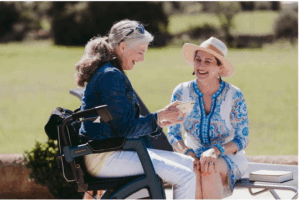In our sun-drenched country, where UV radiation levels are intense, skin checks have become an indispensable aspect of healthcare. Detecting potential issues early on can be a game-changer, especially in a country with the highest global incidence of skin cancer. In this blog, we delve into why skin checks are crucial, how they contribute to overall skin health, and, importantly, how private health cover plays a pivotal role in supporting this proactive approach.
The Australian Skin Cancer Dilemma:
Australia holds the unfortunate record of having the highest rate of skin cancer worldwide. Shockingly, more than two in three Australians are diagnosed with skin cancer by the age of 70. The prevalent types include melanoma, basal cell carcinoma, and squamous cell carcinoma, all exacerbated by our country's relentless exposure to ultraviolet (UV) radiation.
Early Detection: A Lifesaver:
The cornerstone of successfully combating skin cancer lies in early detection. Early identification significantly improves the chances of successful treatment, reducing the need for invasive interventions. Routine skin checks empower individuals to identify suspicious moles or lesions promptly, leading to timely medical intervention and, ultimately, saving lives.
Preventive Measures for Skin Health:
Beyond the critical aspect of cancer detection, routine skin checks also contribute to overall skin health. They identify non-cancerous conditions, enabling early intervention and preventing complications. By prioritising skin health, individuals can proactively safeguard themselves from various skin-related issues.
Sunscreen Application and Safety:
Consistent use of sunscreen has demonstrated effectiveness in minimizing the likelihood of skin cancer, particularly the most severe type, melanoma. Sunscreen constitutes one of the five crucial sun protection practices known as slip, slop, slap, seek, and slide. According to Cancer Council guidelines, it is advisable to opt for a broad-spectrum sunscreen with a sun protection factor (SPF) of at least 30, coupled with water-resistant properties.
This informational document offers guidance on selecting an appropriate sunscreen, ensuring proper application, addressing sunscreen safety concerns, and providing insights into the use of sunscreen on infants.
Understanding Skin Cancer:
Skin cancer results from the damage to skin cells, primarily due to overexposure to UV radiation. The most common types are basal cell carcinoma, squamous cell carcinoma, and the more dangerous melanoma. However, the positive note is that 90% of detected and treated melanomas in their early stages are curable.
The Importance of Professional Skin Checks:
While self-monitoring is crucial, professional skin checks are equally imperative. Healthcare professionals utilise tools and techniques that go beyond what the naked eye can discern. Experts recommend regular professional checks, with annual appointments being a prudent approach.
Where to Get Your Skin Checked:
Several avenues are available for professional skin checks, including your general practitioner (GP), skin cancer clinics operated by GPs, and dermatologists for higher-risk cases or a second opinion. Regular check-ups, combined with self-monitoring, create a comprehensive strategy for skin health.
At-Home Skin Checks:
Between professional appointments, it is vital to keep an eye on your skin at home. Using the ABCDE guide (Asymmetry, Border, Colour, Diameter, Evolving), individuals can monitor existing spots for any changes. Any new spot or alteration in size, shape, color, itching, or bleeding should prompt an additional professional skin check.
Protecting Your Skin:
Prevention is as crucial as detection. Wearing broad-spectrum sunscreen, covering up with protective clothing, and seeking shade when the UV index is 3 or above are essential measures to protect your skin from UV damage.
Private Health Cover for Skin Checks:
Contrary to common misconceptions, private health insurance can play a crucial role in supporting skin health. Many policies in Australia offer coverage for skin cancer screenings, including consultations with dermatologists and diagnostic procedures. This coverage helps alleviate out-of-pocket expenses for preventive skin checks.
Access to Specialist Care:
Private health cover provides access to a network of specialists, including dermatologists specialising in skin health. Timely consultations with these specialists are instrumental in ensuring thorough skin examinations and receiving expert advice on preventive measures.
Financial Assistance for Skin Cancer Treatment:
In the unfortunate event of a skin cancer diagnosis, private health cover can offer financial assistance for various treatments, surgeries, and follow-up care. This support eases the financial burden on individuals and families during a challenging time.
Medicare Limitations:
It's essential to note that Medicare in Australia does not provide rebates for mole mapping, and the rebates for skin checks may not cover the full cost of comprehensive skin examinations. Additionally, most major private health insurers in the country do not offer rebates for skin checks or mole mapping.
Prioritising skin health through regular checks is wise, in our climate. Private health cover not only supports individuals in maintaining their skin health but also provides a safety net in case of skin cancer diagnoses. When considering private health policies, a careful evaluation of their coverage for skin checks, dermatologist consultations, and related treatments is essential. By making informed choices, you can actively contribute to your overall well-being and protect yourself from the sun's harsh realities. Remember, your skin is your body's first line of defense – give it the care and attention it deserves.
If you're considering private health cover, talk to us today to compare plans that best suit your needs. Call us on 1300 861 413 or email hello@health.compare
Your skin's well-being is our priority!















